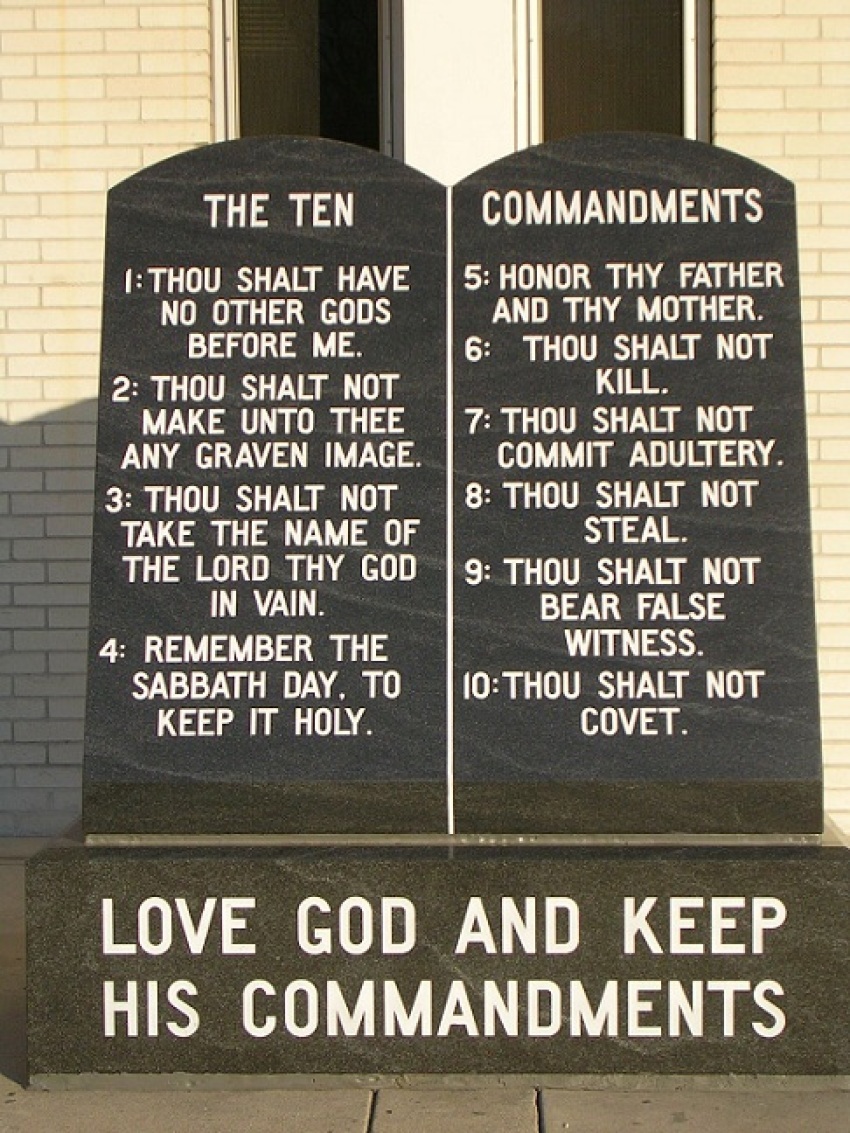Leaving God and morality behind

Pew Research Center recently wrote about “the decline of Christianity” at a “rapid pace.”
Pew stated: “More than eight-in-10 members of the Silent Generation (those born between 1928 and 1945) describe themselves as Christians (84%), as do three-quarters of Baby Boomers (76%). In stark contrast, only half of millennials (49%) describe themselves as Christians; four-in-10 are religious ‘nones,’ and one-in-10 millennials identify with non-Christian faiths.”
Some scholars, like Byron Johnson of Baylor, object, noting that some Americans described as “nones” actually attend nondenominational churches, but are misclassified as if they are unbelievers.
Still, regardless of the statistical details, it does not bode well for society that Christianity is losing its influence.
In 1798, Timothy Dwight, the president of Yale, warned, “Where there is no religion, there is no morality. … With the loss of religion … the security of life, liberty and property are buried in ruins.”
The scary thing about Christianity losing influence in society is what it means to morality in America — and thus to freedom. As William Penn once noted, “If we will not be governed by God, we must be governed by tyrants.”
Yet our cultural elites do so much to banish any vestiges of religion in the public square.
Even as I write this, the American Center for Law & Justice is dealing with a case involving a retirement center in Florida, where residents display all sorts of lawn ornaments — oh, but there is a 12 inch white cross on one couple’s lawn. The cross is not allowed. Everything else is.
Because of so many liberal judges and so few Christian ones, the courts have sometimes gone to ludicrous lengths to keep any kind of religious — no, I should say Christian — expression out of the public arena. Perhaps the situation is moderately improving, since there are fewer justices on the high court who are legislating from the bench than in previous eras.
However, even to this day, we are still dealing with the damage caused by these court cases which have driven expressions of Judeo-Christian religion out of the public square.
A shocking and classic example is when the Supreme Court declared that the Ten Commandments were not allowed in the classroom. In the 1980 case of Stone v. Graham, the high court sided with the secularists in a Kentucky case involving privately-funded copies of the Decalogue of Moses that were displayed in some public schools.
Justice William Brennan wrote the decision, striking down public displays of the Ten Commandments with these chilling words: “If the posted copies of the Ten Commandments are to have any effect at all, it will be to induce the schoolchildren to read, meditate upon, perhaps to venerate and obey, the Commandments. However desirable this might be as a matter of private devotion, it is not a permissible state objective under the Establishment Clause.”
Imagine that. Children obeying the Ten Commandments. How awful.
In a recent television interview, Christian attorney David Gibbs III of the National Center for Law and Liberty told me, “Now, shockingly, we live in a day where unfortunately school shootings and other things dominate our news at levels that are heartbreaking. And I think many American citizens would disagree with the Supreme Court and say, ‘You know what? We would like to see some principles and some values, where the young people of our nation would be taught that there is a right, there is a wrong, that thou shalt not kill.’”
Gibbs continued, “Why is murder against the law? Well, it’s against the law, because the Bible teaches that life has value and that God condemns. When you look at many of the things that we put into our legal system that we might consider core, you know, in terms of the safety and protection of people, it was all Bible-based."
In the mid-1800s, the former Speaker of the House, Robert Charles Winthrop (descendant of John Winthrop), wisely warned us, “All societies of men must be governed in some way or other. The less they have of stringent State Government, the more they must have of individual self-government. The less they rely on public law or physical force, the more they must rely on private moral restraint. Men, in a word, must necessarily be controlled either by a power within them, or a power without them; either by the word of God, or by the strong arm of man; either by the Bible or by the bayonet.”
A professor at Harvard Business School shows in a 90 second video the same idea: the less internal morality, the greater the need for external policing and vice versa.
This is a sober message as so many Americans seem to be entering a “brave new world,” and leaving God — and therefore morality behind — and thereby our freedom as well.
Jerry Newcombe, D.Min., is the senior producer and an on-air host for D. James Kennedy Ministries. He has written/co-written 31 books, e.g., The Unstoppable Jesus Christ, American Amnesia: Is American Paying the Price for Forgetting God?, What If Jesus Had Never Been Born? (w/ D. James Kennedy), and the bestseller, George Washington's Sacred Fire (w/ Peter Lillback) djkm.org @newcombejerry www.jerrynewcombe.com



























